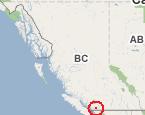|
|
kuna, Id | Hello all, was wondering if anyone here has made a silage pit out of those big concrete blocks that you can get from the ready mix plant? I'm needing to improve my storage situation and those things caught my eye. My thinking was I would be able to change the width of the pit if I went to high moisture corn or haylage, or possibly just add another line of blocks to make a second pit. I know that they have many uses just don't know if they wold stay upright with that much weight against them. My plan was to put them on a asphalt floor. Was curious if anyone else has tried them for silage. TIA... Ted |
|
| |
|

Ripley, Ontario Canada | I have them for one wall in my pit. Have dirt against the other side or they won't hold much. You need good blocks so they stack tight. How high are you planning? I am 8 feet (4 blocks) high with dirt right to the top on the other side. |
|
| |
|
Kansas | Ted, I have just decided, I think, that I am going to purchase some for that very purpose, this year. I have talked to many people and concrete plants and they say that it is already being done that way. I was told that I could go 2 blocks high with probably no support behind them, and 3 high needs support to some extent. I am thinking about 2ft by 2ft by 6ftlong.
Anybody have any experience with the interlocking part of the blocks, whether they are better if they have a small ridge on top or just 2 inverted round potholes.
The lightest ones are 3000lbs and some are 4000 +. |
|
| |
|
kuna, Id | I was wondering if you couldn't even use the blocks as a buttress against the outer wall in a few places to keep the wall upright |
|
| |
|
Columbia Basin, Ephrata, WA | For better results put plastic against your block wall so air can't move through the gaps in the blocks to the feed. That's the biggest problem with the blocks for a pit; too many air gaps.
|
|
| |
|
central Iowa | A guy has a bunker north of Des Moines made of those, like 4 high if I remember right. Looked like it blew out
on one side. Agree that 2 high would probably be OK. |
|
| |
|
|
what do they cost? |
|
| |
|

Chilliwack BC | 30" by 30" by 60" are $70 in our yard here. $55 at the concrete plant. Those weigh 4000 lbs.
I wouldn't go any higher than 2 blocks (5 feet) here without backfilling with dirt. I also heard that the seams are a haven for rats. |
|
| |
|
WI | I d have to look again if there back filled or not but a guy north of town has a couple that must be atleast 10' high if not higher.I was told they used mortor on every block.These are long bunkers to. |
|
| |
|
Kingston,Mi | Our strutural and concrete engineer allowed us to design fertilizer secondary containment walls using the modular block. We were allowed to go 2 blocks or 4 ft with out restraint. he calculated the sliding reaction of the concrete block against several surfaces and concluded that the weight of the block was sufficent to prevent sliding when the internal load was water (62.4 pounds/cubic ft.) Recently they have reconsidered that allowance and now require that the bottom block be restrained by at least a ft. of soil, but this is for liquid fertilizer and that weights about 85 pounds/cubic ft. Silage with a density of about 40 pounds/cubic should be safer, that said there are lots of bunk silos for gravel that are higher than 3 or 4 blocks and that material is 110 to 120 pounds/cubic ft.
Most of the modular block silos around this area are backed with earth up to the point where 2 blocks are exposed. Most of these would be 5 blocks high or 10 ft.
As Ben mentioned lining with plastic to reduce air contact certinaly helps. |
|
| |
|
| why not just buy a bagger and can make 1 bag or 100 bags if you have room. |
|
| |
|
Columbia Basin, Ephrata, WA | Priced any baggers lately?
|
|
| |
|
kuna, Id | I have a bagger ...takes forever, I got it if I need it but not really a fan, especially for corn silage. we have been putting our silage up in drive over piles, but with the cost of feed these days I have been thinking that I need to do more to minimize the losses due to shrinkage, spoilage, and the big one spillage. We don't have the room to pack our piles from all directions so I thought walls would be a huge improvement. Just trying to figure most economical way build those walls. It seems that precast walls (don't know what they cost) would be a similar option, but the enviro blocks ($35) are more readily available, also expandable. Oh, and I can't dig a hole...that would be too easy.
Edited by speedydutch17 7/2/2011 01:41
|
|
| |
|

Chilliwack, British Columbia | We split our old 40' bunker years ago with blocks, went 5 high (12.5'), not a real problem, but it does lean when you get it full, but with a roof we can only go about 11' high. This is with no supports on either side, just a straight up 80' wall. Only went that high to prevent spilling over to the other side, the roof on the bunker keeps us from going any higher with the silage. Would personally never do another like that again, too much waste in the seams, even with plastic. Ours have a taper the blocks meet, I have seen others in other places where the blocks are perfectly square, so that should be less of a problem.
In short, it works, is cheap, but there are better alternatives, if you don't mind spending the money.
Glenn |
|
| |


 silage pit
silage pit